Access to clean water for Roma in Ukraine: a grim tale of local barons, leaky pipes and dry wells
10 August 2016
By Marek Szilvasi and Volodymyr Navrotskyy1
The ERRC’s recent monitoring mission in Ukraine confirms that getting access to clean water and sanitation remains dire for Roma. There is little official interest in making things better, and there is no doubt that the water situation is far worse for Roma than non-Roma. In pursuit of the fuller picture, the ERRC visited Roma sites (tabors) and met with public authorities, water distribution companies and civil society groups in the four cities of Chop, Uzhorod, Mukacheve, and Berehove, as well as some neighbouring villages.
Chop (pop. 10,000) is located on a railway junction on the Ukrainian-Hungarian-Slovakian border and is home to several hundred Hungarian-speaking Roma. The public water supply in the city is owned and managed by the Ukrainian national railway company. The old pipes are corroded with significant leakage and water contamination. According to the mayor, the municipality and the railway company are locked in dispute over the need for investment in the water supply, and the city is exploring options to municipalise it with the help of foreign investors.
The Roma tabor is on the outskirts of the city and is comprised of concrete houses in an upper part, and wooden and scrap metal shacks at the lower end. Some houses are registered and connected to the public water supply but due to pipe corrosion and leakage, the water pressure is so low that even these houses run dry. So dry in fact, that the inhabitants rely on the water supply from three private self-made wells dug by the poorer Roma in the lower end of the tabor. Despite apparent social inequalities between the Roma from the upper and lower ends of the neighbourhood, there is no tension when it comes to sharing water. The better-off Roma come daily to collect water with plastic buckets to the private yards of the Roma from the low end of the tabor and nobody denies them access or charges them a fee. At the time of our visit, another family was trying to dig a well outside their home with the help of two well diggers, but when their drills hit hard rock they had to give up. The men charge a fee for each digging, so every failure to find water is costly for the family.
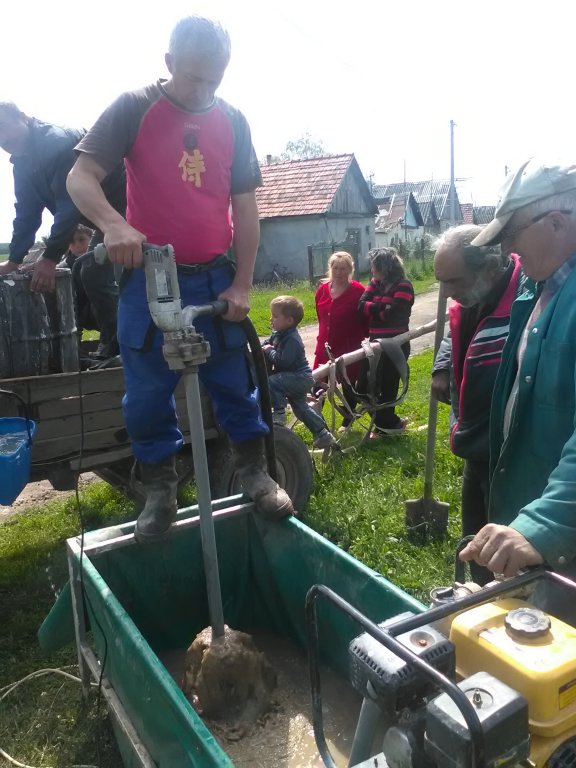
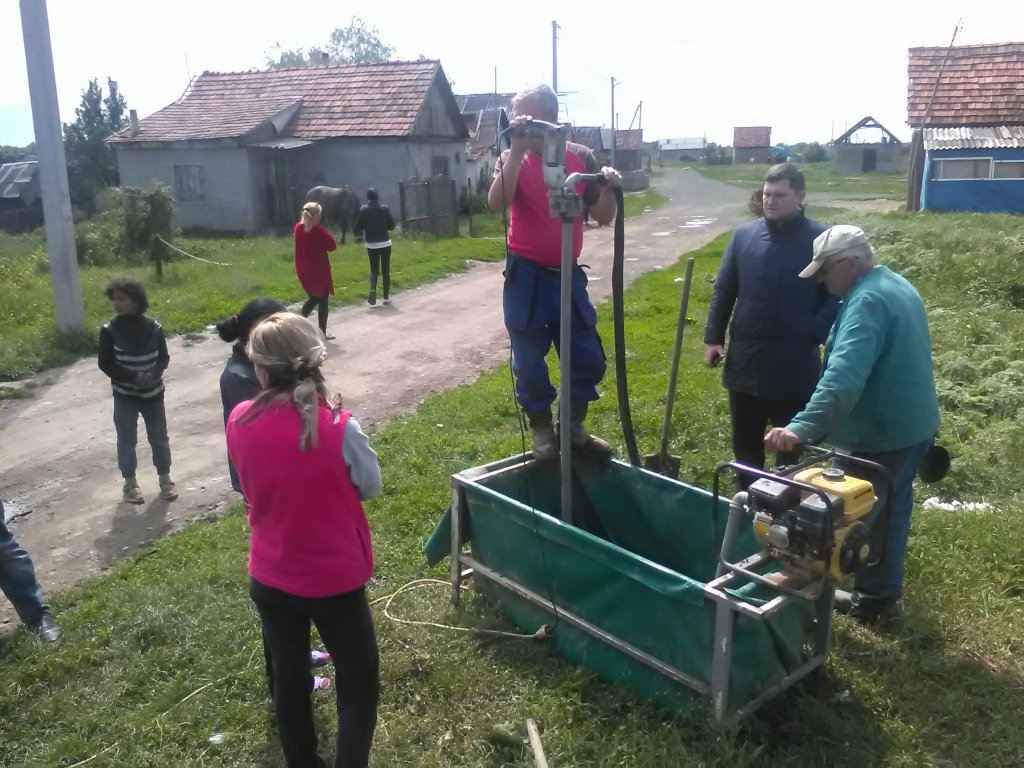
A decaying, corroded and contaminated water supply, where massive leakage leaves homes dry carries huge health and safety risks. Three years ago, a large Roma tabor on Ivan Franko street, which is home to some 5000 Roma and is located at the outskirts of Muchaceve was hit by a hepatitis epidemic, causing some 100 people, mostly children, to be hospitalised. Tests confirmed the source of the epidemic was a contaminated water supply. So the municipality simply cut off the supply and left Roma without access to water. A couple of years passed before a new water system was installed in the tabor with the support of international donors. The supply comes from a public pipe laid above ground and water runs for only four hours daily (the rest of the city has a 24-hour supply). The poorer Roma take water from self-made wells. Instead of providing an adequate water supply or sewage system, much to the anger of the community, the municipality erected a statue of a street-sweeper and his dog at the edge of the tabor.
There are five large tabors in the city of Uzhorod – at Timiriazeva, Granitna, Telmana, Radvanka, and Pirohova streets – in which several thousand Roma live. Although some houses have been legalised, most of the Roma live in informal settings.
The water company claims it already has problems supplying residents with water in a rapidly expanding city where the tariffs are among the highest in the country, and where local elites use their political influence to avoid paying water fees for their swimming pools.
The local authorities have shown no interest to legalise the informal dwellings and the municipal water provider will not connect Roma dwellings until they are fully legalised. Additionally many Roma do not possess the ID documents needed to request a connection to the water supply. In any case the cost of an individual water connection is exorbitant for local Roma.
Some houses in a large tabor, on the site of a former military barracks in Telmana Street, have recently had water pipes laid. Until 2015 the whole tabor was served by one public pump. But the water runs for just a few hours every day and supplies only the houses on the first street due to weak pressure. The Telmana Street housing is more formalised, the tenants have assigned registration numbers as the military barracks was officially recognised in the municipality urban plan, and with ERRC support, the tenants created a unique housing cooperative run by local Roma.
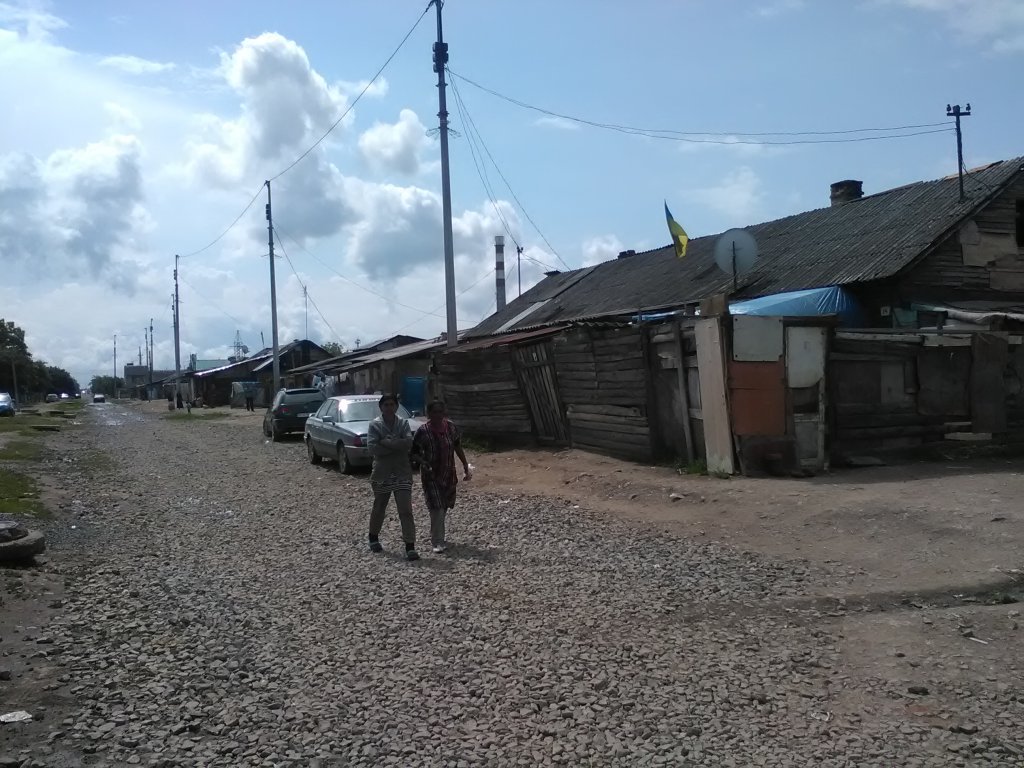
The tabor at Granitna Street is on the outskirts of the city, separated by a dusty road from an industrial zone. Roma moved here about 20 years ago because they got work in the industrial asphalt plant. Today only a few Roma are employed as security guards watching over an idle, decaying plant. In April 2016, the tabor was connected to the municipal water system. A drinking water counter was established at the house of the local baron and some 30 households were connected to this counter. The baron was entrusted with collecting the water fee collection (about 600 Ukrainian Hryvnia (UAH) per month), which he collects in line with his own policy: “who is poorer pays less, who is richer, pays more”. But many houses remain unconnected to the water supply. There is no sewage in the tabor and people use pit-latrines.
The water tap in the integrated large tabor at Pirohova Street was installed some four years ago and sponsored by Norwegian donors. Before that, the only source of water was a carwash about 200 metres from the tabor. Lack of access to water meant that a fire completely destroyed several houses some years ago. Now, the households are charged 210-400 UAH per month for water, a price that many cannot afford. As there is a collective contract there is a risk that the supply to the whole tabor might be cut off. There is however a solidarity collection in the tabor for those who cannot temporarily afford to pay.
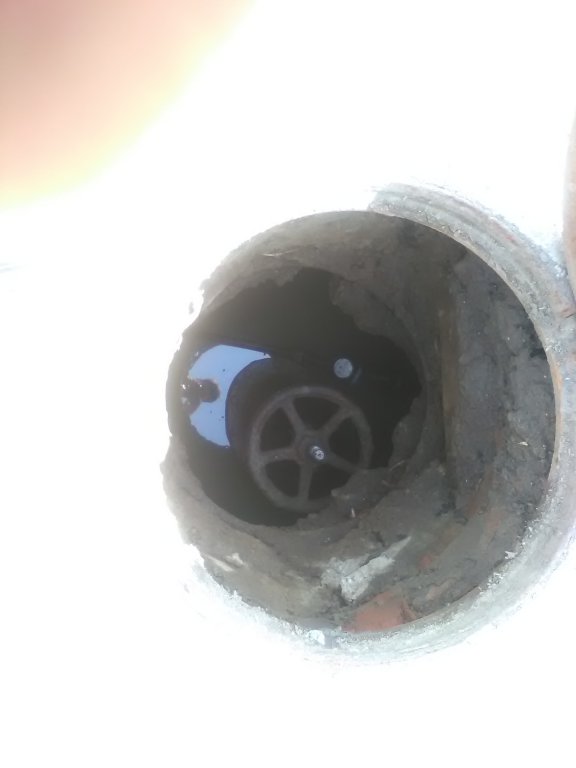
Southeast of Uzhorod, there is a large Roma settlement at the outskirts of Berehove located at the Ukrainian-Hungarian border. Between five and six thousand Roma people share three taps located alongside the main mud road. These taps are often turned off, or just out of order. The municipality delegated maintenance and use of the taps and collection of water fees to a local baron and his accomplices. In contrast to the rest of the city, there is no official policy about fee collection and barons collect lump sums per capita regardless of household consumption. There is no sewage system in the settlement, only self-made pit-latrines, and a self-made canal for liquid and other waste, which is located between ten and twenty metres from the houses.
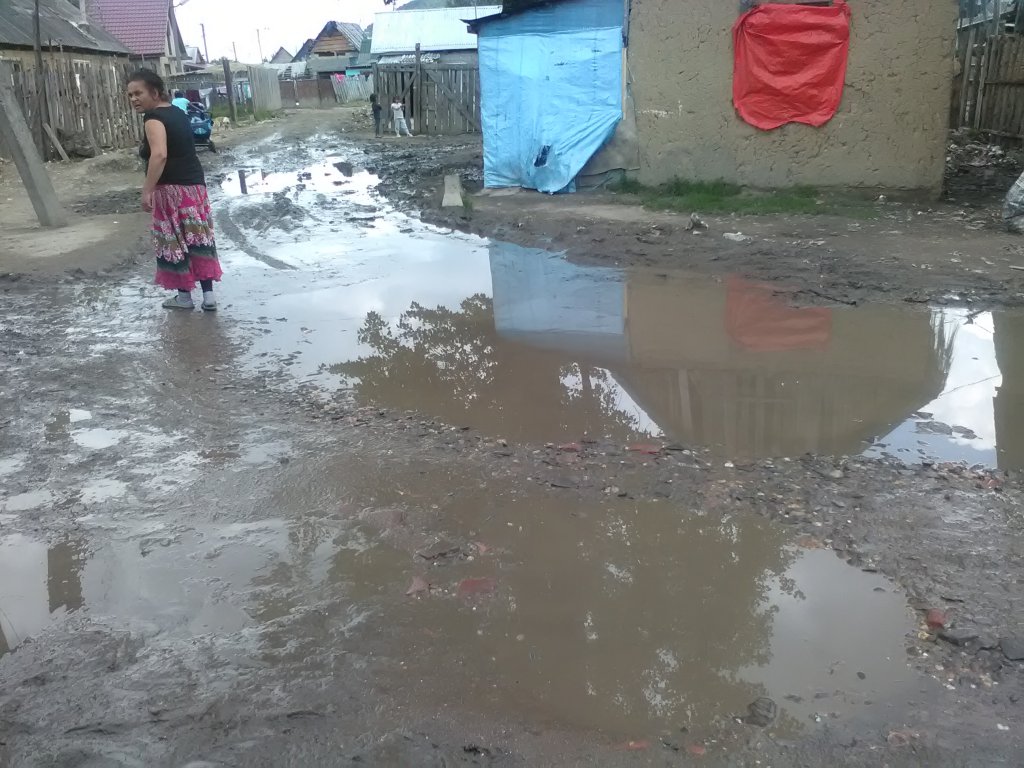
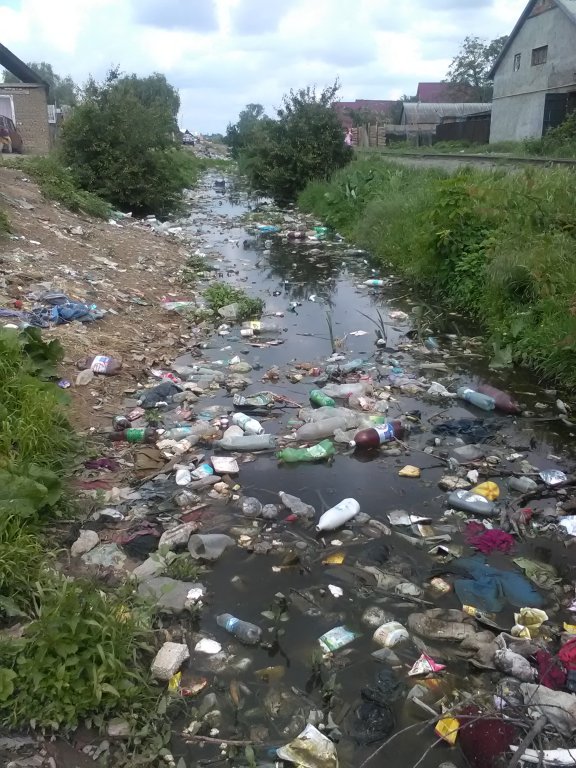
This practice of relying on local barons often results in more exclusion and less access to public services for Roma. Barons are appointed by local authorities (not elected by communities) to administer meagre service provision in segregated Romani settlements. By virtue of such appointments and frequent involvement in usury and informal employment practices, these barons have secured dominant positions in the community.
Access to drinking water depends on informal payments and the arbitrary will of local barons and their accomplices. There is no water meter system against which the payments are collected and people are not shown water bills. Instead, the barons determine an amount to be paid in a lump sum, as the municipality is only concerned that a payment is made to cover the collective consumption of the whole settlement. Such arrangements mean there is no independent body to review how much money is collected, and by which methods.
Roma tabors in rural areas are in an even more difficult situation with water access as they are not supplied with any public drinking water utility – no public wells or pumps - and local authorities admitted to us that they have no plans in the future to connect the Roma settlements to the water supply system; and as water supply is often a problem for the entire village, many authorities simply don’t envisage solutions that would include Roma tabors.
Myrcha is a small village in the Carpathian mountains, some 35 km northeast of Uzhorod. To get to the Roma tabor you need to take an off-road and drive some 10 minutes from the village towards the forest. About 150 Roma, many of them children live in the tabor made of wooden and mud-made shacks now, the tabor was founded some 100 years ago, and some houses reportedly have registration documents. There are no public services available in the tabor, there is no running water supply, no public pump or well The Roma rely on rainwater collected from a hole dug in the hill that overlooks the tabor. There is no water in dry periods and they have to take water from a nearby creek, which according to the locals “smells of chemicals”. They tried to dig a well, but did not reach any water.
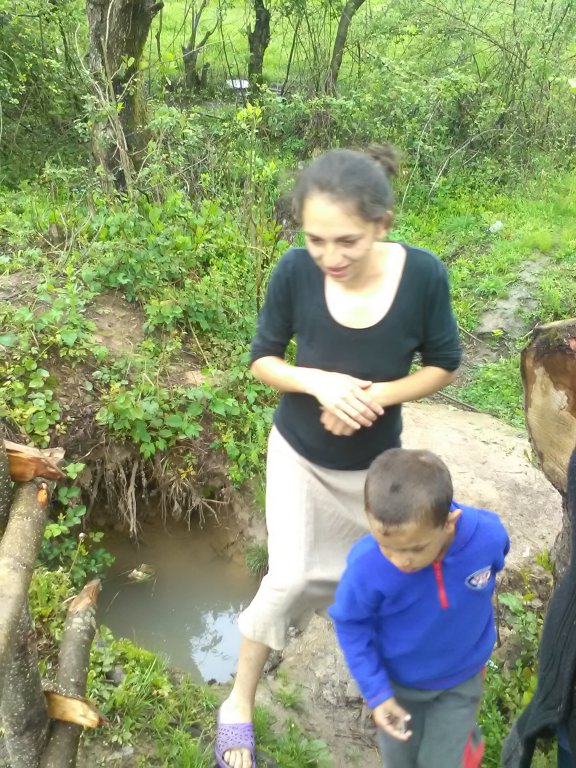
There is no sewage system either and Roma use self-made pit latrines. During the meeting with the Myrcha Mayor Ivan Ivanovic and his deputy, we found that they are aware of the situation with water and sewage in the tabor, but have no plans to make any improvements. They pointed out that the village itself has no public water system and it is dependent for its water supply on a self-made system that connects water from a forest lake to the houses in the village. Neither are there any funds available for a sewage system in the village. As the tabor was not included in the urban plans of the village, the mayor claims he does not have any competence over the tabor: “We want to help them, but the problem is the Ukrainian law, the tabor is beyond the village, we first need to include them in the cadastre.” In response to the question whether the municipality could not make a well in the tabor, the mayor shuddered and responded, “this would need a geological investigation as well and involve much bureaucracy. The paper work would be greater than the work itself, and precludes us from even starting such a project.”
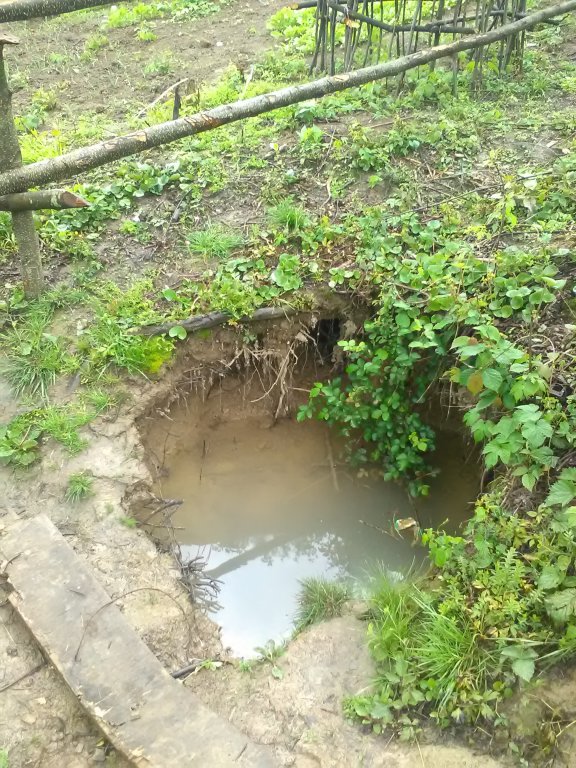
Conclusion
In general, the situation with drinking water in urban Roma tabors is dire, either there is no public water supply, houses have been cut off due to payment arrears, or a combination of massive leaks, corrosion and contamination render the water unfit for human usage. The few houses in some tabors connected to public water supply are given collective contracts and fixed fees are often collected by a local baron, regardless of individual consumption. Without any transparency and minimal administrative oversight, the state is effectively complicit in the supply of water becoming part of an exploitative and usurious informal economy.
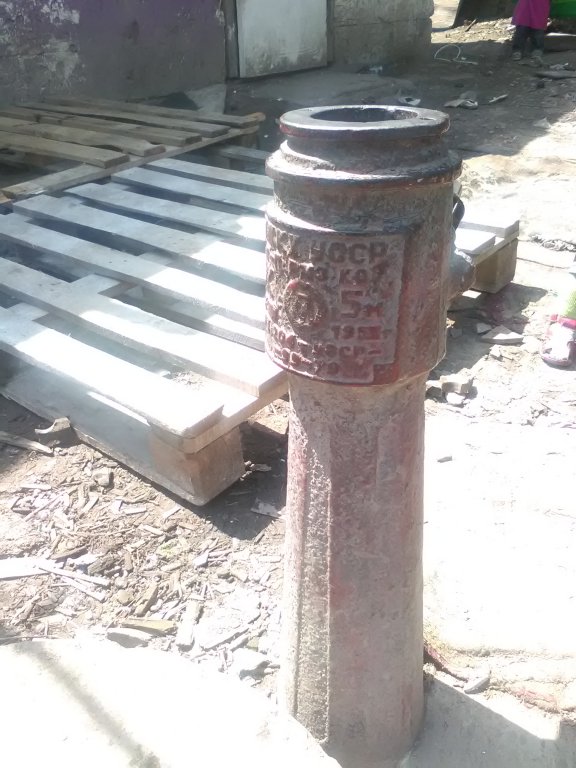
1. Volodymyr Navrotskyy is the ERRC’s human rights monitor in Ukraine.




